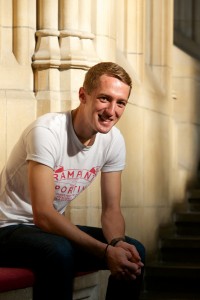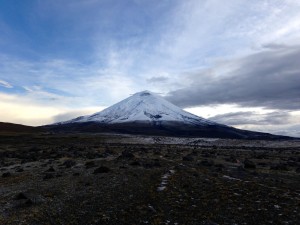Louise Wingrove is a third-year postgraduate researcher in the department of Drama: Theatre, Film and Television. Her research is focused on how the lives of working women were represented by serio-comediennes on the Victorian music-hall stage, using the characters and careers of Jenny Hill (1848-1896) and Bessie Bellwood (1856-1896) as case studies. Most of her research is archive based, piecing together long lost careers, songs and venues through files of reviews, photographs and sheet music.
This is Louise’s second entry for the ‘Year in the Life of a PhD’ blog. Her first entry, entitled ‘Belonging in archives’, discussed the challenges of finding your niche as a researcher and the joy of learning new skills.
Having taken time off to welcome in the new year (I know – a PhD student taking time off –a reckless and laughable idea!) I awoke on January 1st 2015 with a realisation that made my brain freeze: I am due to submit this year! Not the end of next year, but this year! Having read all of the other fantastic blogs in this project, I have noticed a popular theme regarding the PhD panic that can set in. That moment when imposter syndrome strikes and one becomes convinced they have somehow slipped under the radar and security is sure to storm the building soon and wrestle you back to reality. Yet, mid panic attack, paper bag in hand, I thought about this exact time the previous two years.
January 2013 – I had just been offered the chance to write two short pieces about the careers of Marie Lloyd and Sarah Millican for a fantastic book celebrating the great successes of female stand-up comics over the years. Written and edited by Jane Duffus of Bristol’s highly successful “What the Frock” comedy club the book was sure to be excellent and there was the added bonus of making great contacts. I was one term into my PhD and, though I later jumped at the chance to be a part of such a brilliant project – I suddenly lost every bit of confidence I had ever had and nearly turned it down for the reason that “someone like me couldn’t do something like that.” Two years later and I can’t believe how worried I was and I am incredibly excited to see it be released later this year.
January 2014 – The new year nineteenth century panic! I had decided (through my love of music hall and obvious fixation on the archives) that I would now just be looking at women from the Victorian Music Hall. The snag – I knew nothing about the Victorian Era! I’d never even read a Charles Dickens novel – The Muppets Christmas Carol being my closest link. And, on top of that, the suggestion had been made that I should speak at conferences this year. Now, I actually love public speaking and had also just happily given a paper at a symposium within the department BUT – why on Earth would anybody want to listen to me when they could listen to real academics? Suddenly the curse of the January brain freeze hit again and the thought of learning all about Victorian history and giving papers at conferences by the end of the year seemed mightily implausible and headache inducing. After a bit of a sulk and internal tantrum, I got several history books on the nineteenth century in general and locked myself away to read…and read…and read. The more I read, the clearer my research path became and the less out of my depth I felt. And after establishing that I was not alone in this feeling of irrational inadequacy, I felt confident enough to attend conferences – making contacts and starting to use the new information I was immersing myself in. I had a sudden set back – health problems arose that threatened to put me right back again. However this seemed to actually give me the focus I needed and, before I knew it I was preparing to talk at a conference at a university in Lisbon as well as ones at Glasgow university and Oxford University – putting my research out there to ‘real’ nineteenth century scholars. Glasgow, the first I attended, was the hardest – my confidence in my new found expertise was not quite cemented yet, but all went extremely well and helped to build my confidence increasingly. The excellent GW4 communications conference held at Bristol and bringing together researchers from Cardiff, Exeter and Bath, as well as those here in Bristol, also helped me to develop my networking skills. The contacts these conferences have subsequently given me has boosted my confidence in my abilities as well as helping me select what information to develop and put into my final thesis. In preparation for the Lisbon conference I even recorded myself singing the music hall song I was discussing in my paper – something I have never done before and which therefore both terrified me and gave me an extra thrill as people responded so well to hearing the music for themselves for the first time.
At the end of 2014 I remained on track with my studies – developed my historical and social understanding more than I ever expected and have travelled, giving well-received papers at conferences, despite my initial reaction to sit under a duvet and cry!
So, as I sit with said duvet applied to my head in the January of 2015 fearing my thesis write up, new teaching opportunities and the multiple plans of what to do after my PhD – I know in January 2016 I will be sat in exactly the same position, laughing at this year’s ‘trivial’ worries, and devising ways to try and release me from all the scary new things 2016 hold.








